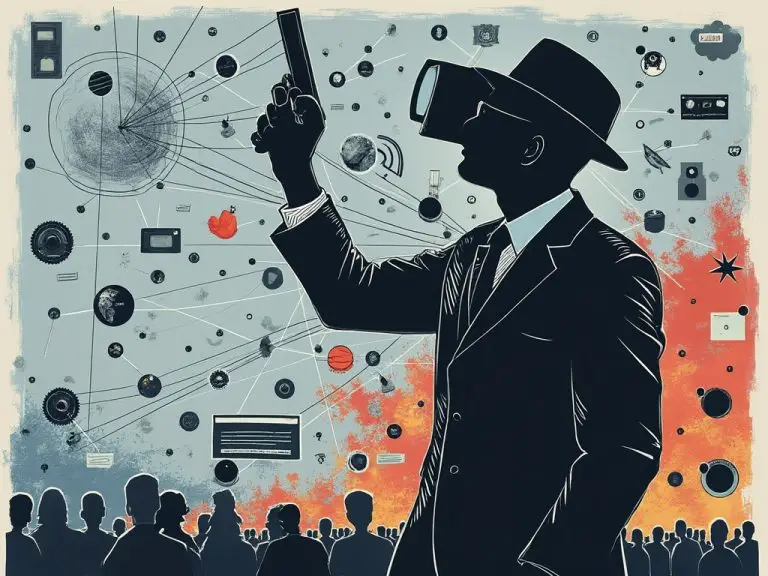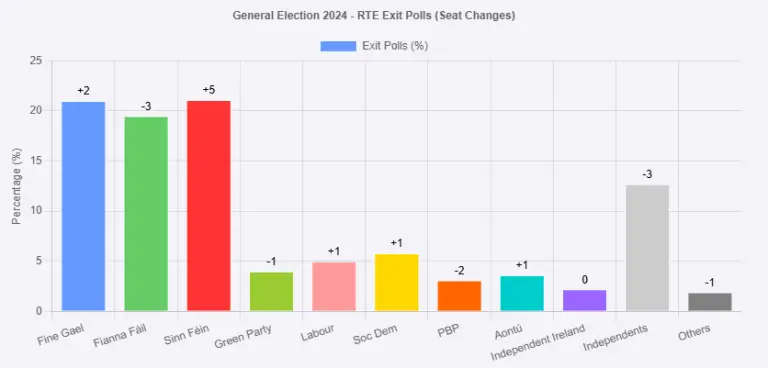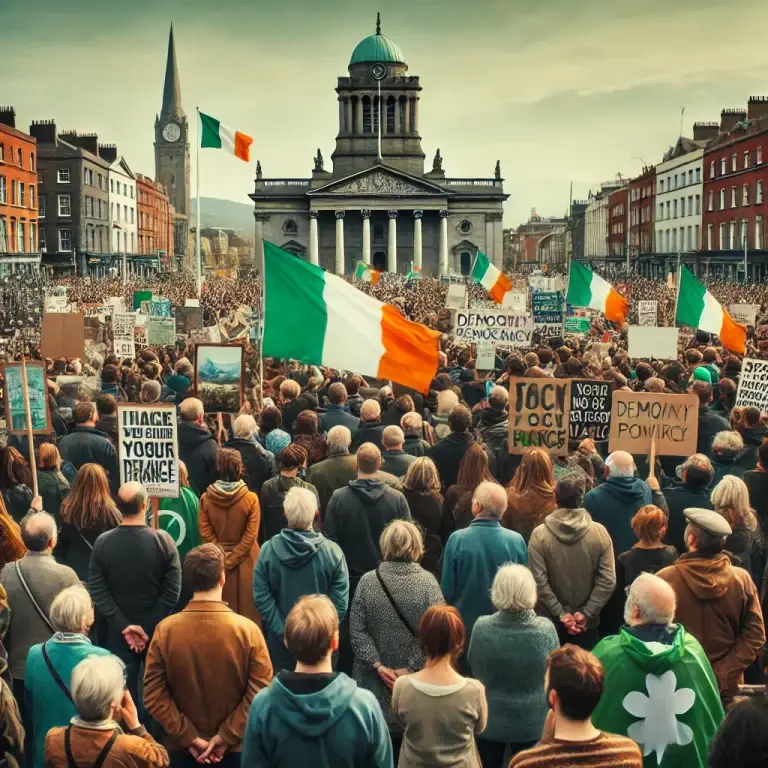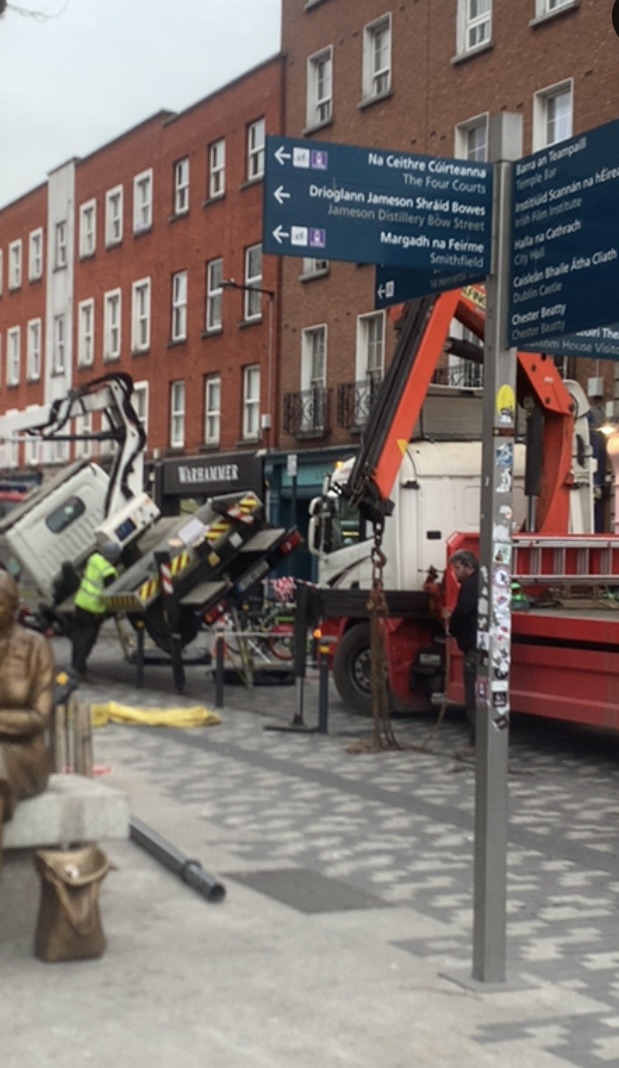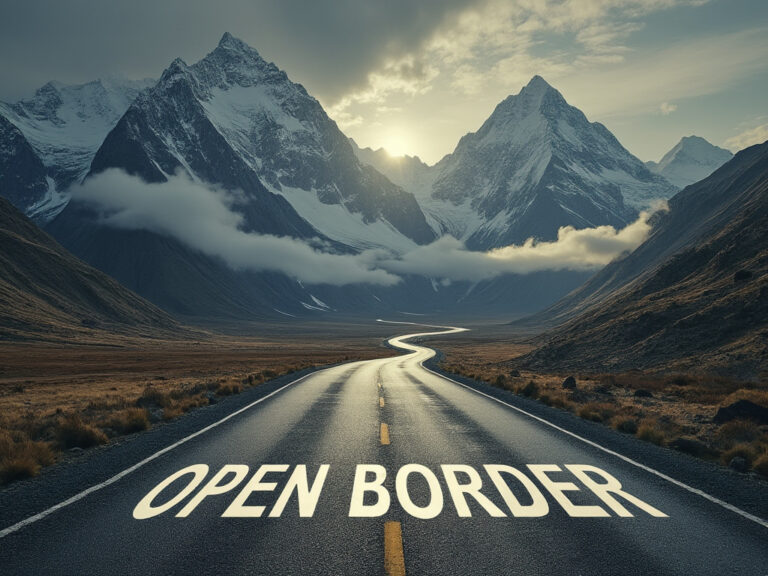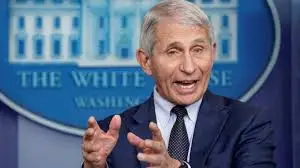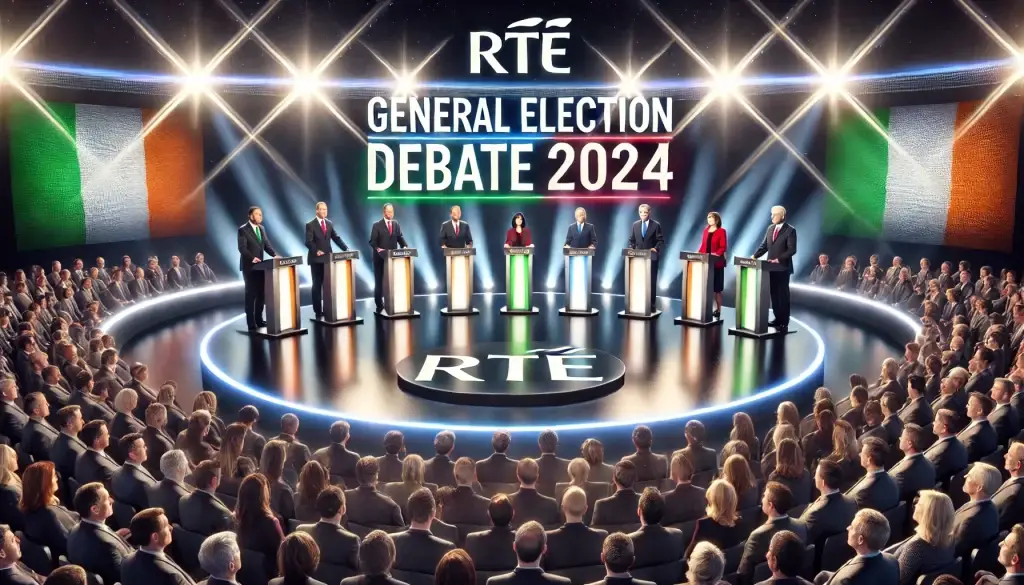
|
Getting your Trinity Audio player ready...
|
The RTE Leaders’ Debate 2024 has emerged as a pivotal event in the lead-up to Ireland’s General Election on November 29. Ten party leaders took the stage to present their visions, offering voters a glimpse into their respective policies and leadership capabilities.
Housing: A Defining Issue for Voters
Housing took centre stage during the RTE Leaders’ Debate 2024, reflecting its prominence as a critical issue, especially for younger voters who struggle with rising property prices and rental costs.
Mary Lou McDonald’s Vision: Historic Shift or Empty Promises?
Mary Lou McDonald, leader of Sinn Féin, began the debate by declaring the election “potentially historic,” signalling her party’s ambition to lead. However, when pressed on Sinn Féin’s housing plans, McDonald struggled to provide concrete proposals. Critics were quick to point out her inability to explain how the party would manage the housing crisis, leaving voters uncertain about the specifics of her vision.
Proponents of Sinn Féin argue that McDonald’s critique of the government’s record was valid, especially concerning the collapse of first-time buyer percentages under Fine Gael and Fianna Fáil. However, the lack of a clear solution allowed opponents to pounce.
Micheál Martin’s Response: Housing Policies Under Scrutiny
Fianna Fáil leader Micheál Martin seized the opportunity to criticise Sinn Féin’s housing policies, labelling them “not serious.” He introduced a plan to build 125,000 homes for first-time buyers within five years, a figure that raised eyebrows given Ireland’s current housing shortages. While Martin’s delivery was polished and confident, critics reminded voters of his party’s role in creating the housing crisis during the Celtic Tiger era.
Simon Harris Defends Fine Gael’s Record
Fine Gael’s Simon Harris defended the coalition’s record on housing, citing the approval of numerous construction projects. However, Harris was criticised for avoiding questions on the government’s future plans, particularly whether Fine Gael would support another rotation Taoiseach arrangement.
Healthcare Debate: Fragmented Solutions or Transformational Change?
The healthcare segment of the debate revealed deep divisions between the party leaders, each offering vastly different visions for Ireland’s healthcare system.
Sinn Féin’s Healthcare Vision: A Single-Tier System?
Mary Lou McDonald reiterated Sinn Féin’s commitment to a single-tier healthcare system, aiming to eliminate the two-tier model. While her vision was bold, it lacked detailed solutions on funding and implementation, leaving critics questioning the feasibility of such a radical change.
Simon Harris Defends the Government’s Efforts
Simon Harris highlighted the government’s investment in mental health resources and hospital upgrades. Yet, his opponents quickly argued that these efforts had not met the growing demand, particularly in rural areas.
Roderic O’Gorman’s Green Party Focus: Sustainable Healthcare Infrastructure
Roderic O’Gorman, representing the Green Party, discussed integrating environmental sustainability with healthcare development. He proposed building sustainable healthcare infrastructure as a step towards an eco-friendly future. Critics, however, doubted whether the Green Party’s environmental goals could effectively address the immediate challenges in healthcare.
Climate Change and the Green Party: Balancing Environmental Goals with Economic Realities
The Green Party came under fire for its environmental policies during the debate. While they touted achievements in renewable energy and sustainable transport, opponents accused the Greens of compromising too much to stay in coalition.
Joan Collins’ Critique: Environmental Goals vs. Working-Class Families
Joan Collins, leader of Right to Change, voiced concerns that the Green Party was prioritising environmental goals at the expense of working-class families. Many voters share this sentiment, especially those burdened by rising energy costs. O’Gorman defended the Greens’ balancing act but struggled to convince critics that their policies were suitable for all socio-economic groups.
Coalition Politics: Who Will Work with Whom?
A significant theme throughout the debate was the question of coalition alliances. The debate revealed the deep divisions among the leaders on the prospects for post-election partnerships.
Sinn Féin: A Divisive Partner?
Simon Harris categorically ruled out any coalition with Sinn Féin, citing ideological differences as a major obstacle. Micheál Martin, while less definitive, stressed that Fianna Fáil would only cooperate with parties that shared their economic policies.
Smaller Parties: The Potential Kingmakers
Smaller parties like Aontú and Right to Change positioned themselves as potential kingmakers, aiming to hold the balance of power in a coalition government. While their messages resonated with certain constituencies, it remained unclear whether they could translate this support into significant influence.
Controversies and Criticism: The Debate’s Fallout
The RTE Leaders’ Debate 2024 was not without its controversies. Simon Harris faced tough questions about his defence of Senator John McGahon during a legal dispute, admitting that he had supported McGahon without fully reviewing the evidence. This moment of vulnerability drew significant backlash on social media and from debate participants.
Meanwhile, Mary Lou McDonald was criticised for her lack of preparation, with some commentators suggesting that Sinn Féin’s growing popularity may have led to complacency in their campaign strategy.
Conclusion: What Lies Ahead?
The RTE Leaders’ Debate 2024 has set the stage for a fiercely contested General Election. Housing, healthcare, and climate change remain the key issues, but the debate also highlighted the importance of coalition dynamics and leadership styles. Voters now face starkly different visions for Ireland’s future, each shaped by the strengths and weaknesses on display during this historic event.
To watch the full debate, click here.
For more insights on the political landscape, read our full analysis.
As the founder of TruthWars, Truth brings an unapologetically bold voice to the forefront of today’s critical issues. Committed to exposing hidden truths and questioning popular narratives, Truth combines in-depth research with a sharp eye on media and government actions.
With experience in digital publishing and a dedication to clarity, TruthWars crafts content that both challenges and informs, delivering powerful insights to readers.
Driven by a passion for truth and transparency, Truth is building TruthWars into a trusted platform for independent thought.
Discover more from Truthwars
Subscribe to get the latest posts sent to your email.

